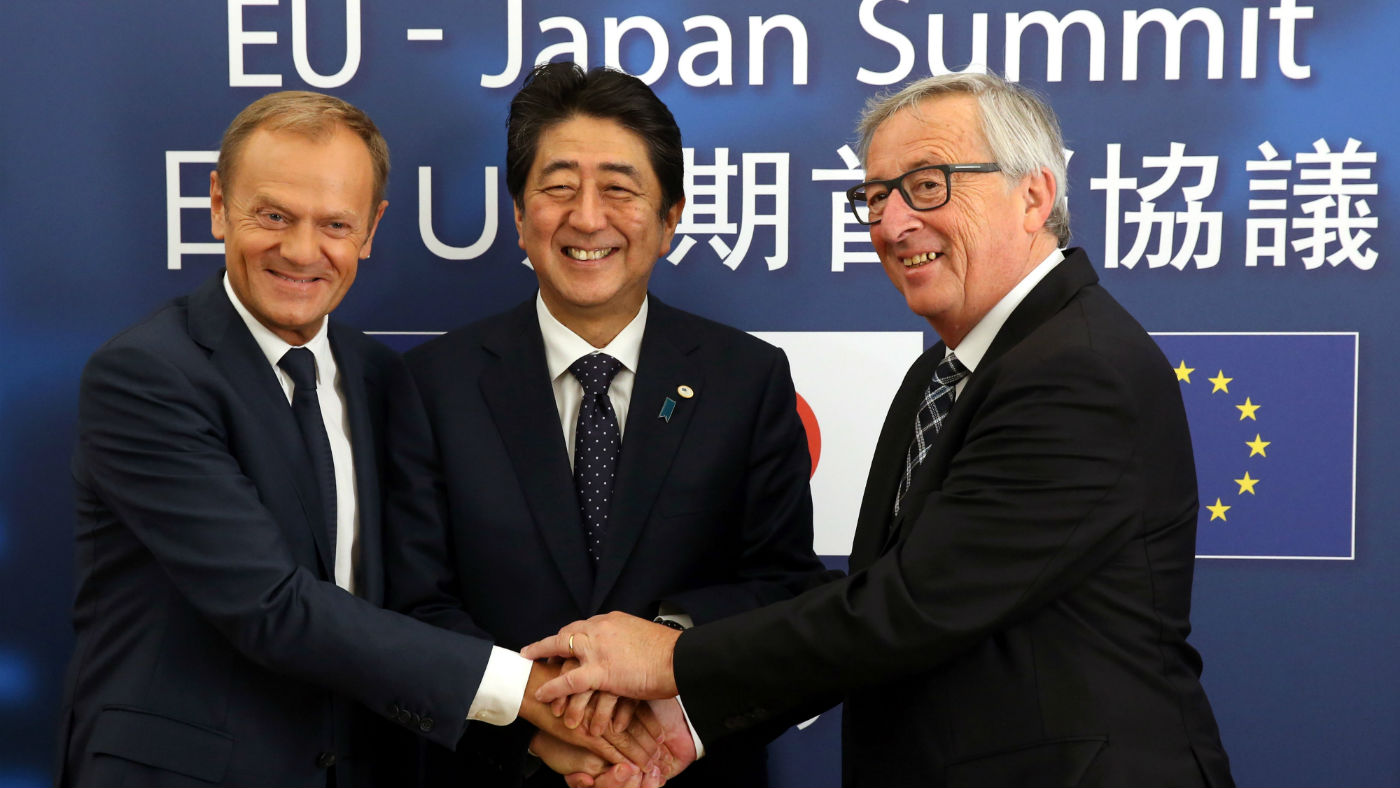Japan and EU strike free trade deal after four years of talks
Agreement sends anti-protectionist signal ahead of G20 summit in Germany

A free daily email with the biggest news stories of the day – and the best features from TheWeek.com
You are now subscribed
Your newsletter sign-up was successful
Japan and the EU have agreed on the outline of a free trade deal after four years of negotiations.
"At the heart of the deal is an agreement for the EU to open its market to the Japanese auto industry, with Tokyo in return scrapping barriers to EU farming products, especially dairy," says AFP.
Yesterday's announcement, which came on the eve of the G20 summit in Hamburg, has been seen as a clear rejection of protectionist trade policies touted by US President Donald Trump.
The Week
Escape your echo chamber. Get the facts behind the news, plus analysis from multiple perspectives.

Sign up for The Week's Free Newsletters
From our morning news briefing to a weekly Good News Newsletter, get the best of The Week delivered directly to your inbox.
From our morning news briefing to a weekly Good News Newsletter, get the best of The Week delivered directly to your inbox.
As Brexit negotiations get underway, the pact "will also show skeptics in the EU the benefits of staying in the grouping with access to inner and outer markets," the Japan Times reports.
But the BBC reports that few specific details are known and "a full, workable agreement may take some time".
It comes six months after Trump followed through on his campaign promise to pull the US out of the Trans-Pacific Partnership, a trade deal with Japan and ten other Pacific ring countries.
"Although some are saying that the time of isolationism is coming again, we are demonstrating that this is not the case," European Council President Donald Tusk told the BBC.
A free daily email with the biggest news stories of the day – and the best features from TheWeek.com
-
 Epstein files topple law CEO, roil UK government
Epstein files topple law CEO, roil UK governmentSpeed Read Peter Mandelson, Britain’s former ambassador to the US, is caught up in the scandal
-
 Iran and US prepare to meet after skirmishes
Iran and US prepare to meet after skirmishesSpeed Read The incident comes amid heightened tensions in the Middle East
-
 Grok in the crosshairs as EU launches deepfake porn probe
Grok in the crosshairs as EU launches deepfake porn probeIN THE SPOTLIGHT The European Union has officially begun investigating Elon Musk’s proprietary AI, as regulators zero in on Grok’s porn problem and its impact continent-wide
-
 Israel retrieves final hostage’s body from Gaza
Israel retrieves final hostage’s body from GazaSpeed Read The 24-year-old police officer was killed during the initial Hamas attack
-
 China’s Xi targets top general in growing purge
China’s Xi targets top general in growing purgeSpeed Read Zhang Youxia is being investigated over ‘grave violations’ of the law
-
 Panama and Canada are negotiating over a crucial copper mine
Panama and Canada are negotiating over a crucial copper mineIn the Spotlight Panama is set to make a final decision on the mine this summer
-
 Europe moves troops to Greenland as Trump fixates
Europe moves troops to Greenland as Trump fixatesSpeed Read Foreign ministers of Greenland and Denmark met at the White House yesterday
-
 Why Greenland’s natural resources are nearly impossible to mine
Why Greenland’s natural resources are nearly impossible to mineThe Explainer The country’s natural landscape makes the task extremely difficult

